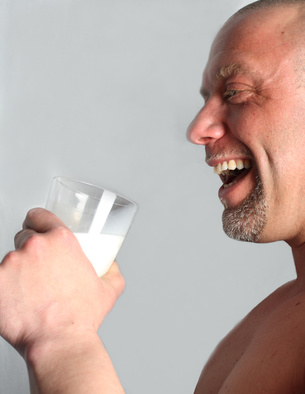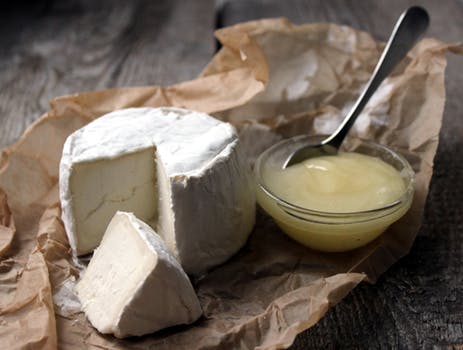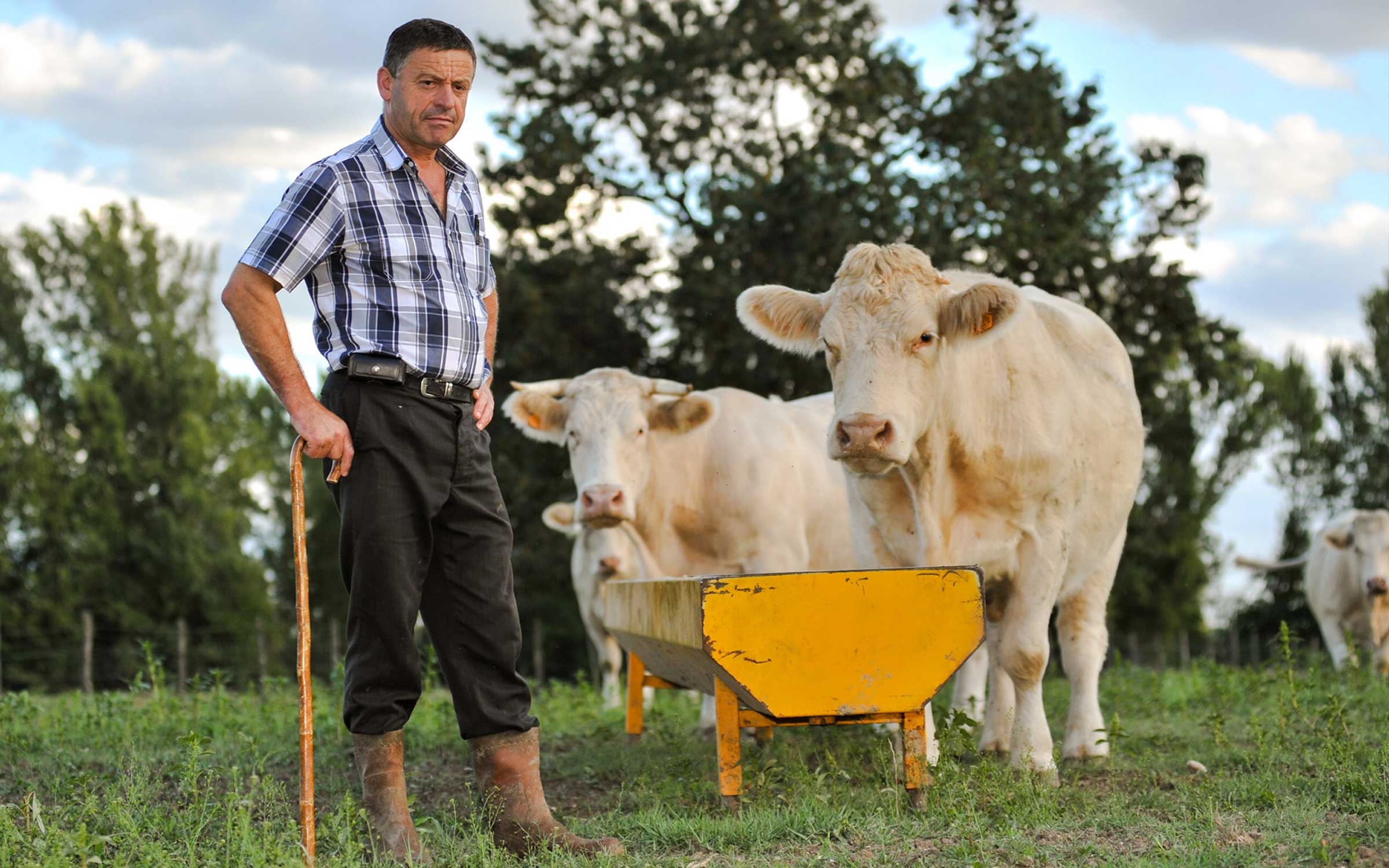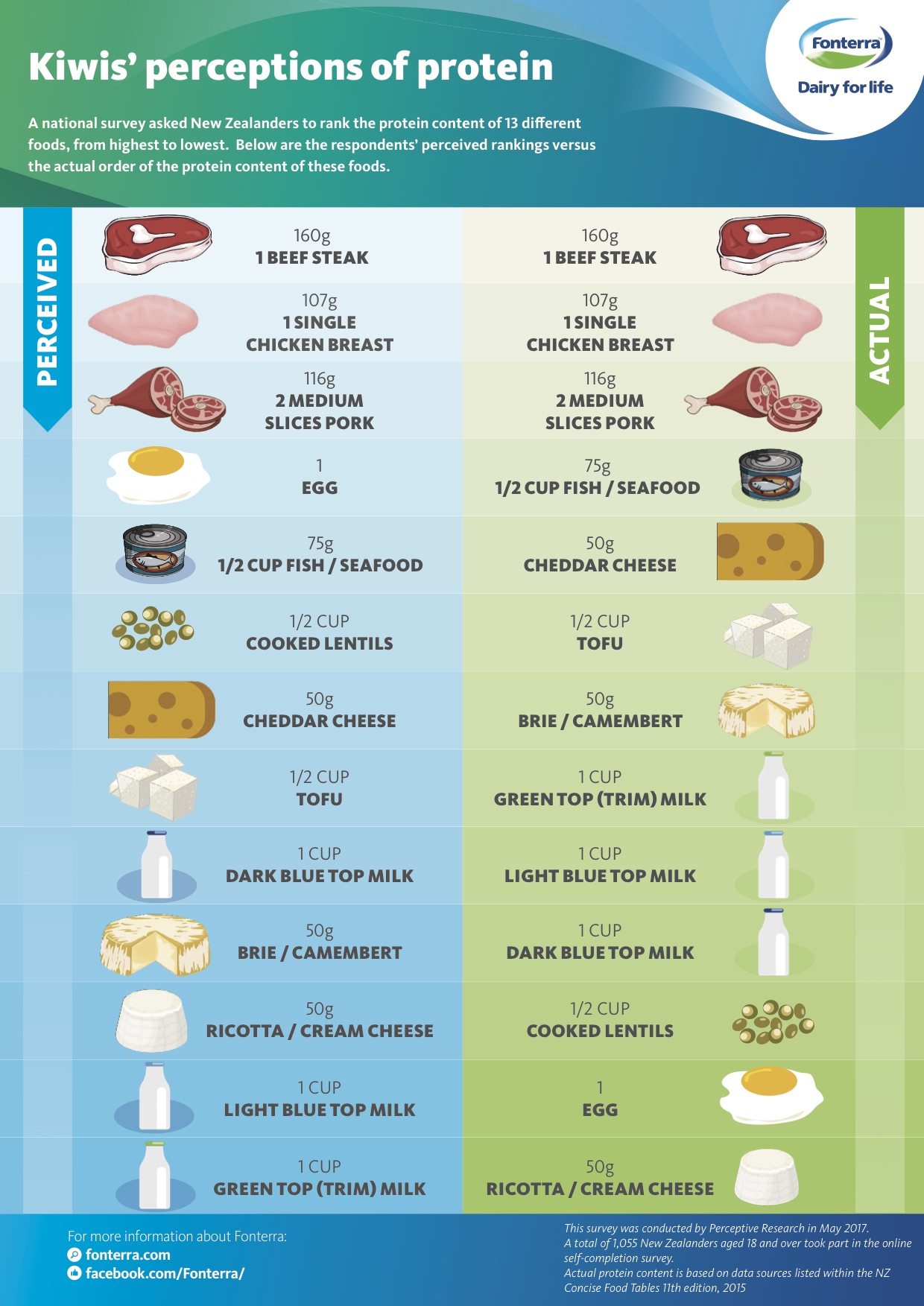A national survey has revealed the older generation of Kiwis have surprising shortfalls in knowledge of what they should be eating for optimal health.
 Conducted by an independent research agency, the survey of 1,055 people revealed many Kiwis aged over 18 do not have a strong grasp on the need for protein in their diet, when and why.
Conducted by an independent research agency, the survey of 1,055 people revealed many Kiwis aged over 18 do not have a strong grasp on the need for protein in their diet, when and why.
The research was commissioned by Fonterra to ascertain the nation’s knowledge of the importance of protein, and its consumption in various sources, including dairy.
While 86% of respondents aged 55+ believed getting enough protein was important to their health, only 7% said they knew how much protein they should eat each day.
Angela Rowan, Fonterra’s General Manager of Nutrition, says it’s ideal for people to have high-quality protein spread more evenly throughout the day, rather than eating a single large portion at night.
“Our bodies need protein for optimal health – if we don’t get protein from our diet throughout the day, muscle mass can be broken down to supply it,” Rowan says.
Maintaining adequate protein intake is particularly important for older adults. As people get older, their bodies become less efficient at utilising dietary protein. Research has also shown that older adults tend to eat less energy (kJ or calories) than younger adults, and are more at risk of inadequate protein intake.
To help boost your protein IQ, we have this informative guide:
What is protein?
Protein is one of the main macronutrients in food and is integral to body function. Protein is made up of chains of smaller building blocks called amino acids, which, when consumed as part of a healthy diet, are necessary for building and repairing body tissues and help to maintain muscles and bones. The main protein sources in the diets of older adults are: bread, milk, beef and veal, fish/seafood, pork and poultry.
How much do you need?
 The amount of protein you need is specific to you. Variables such as your age, weight, physical activity levels, and overall energy intake can affect how much protein you need.
The amount of protein you need is specific to you. Variables such as your age, weight, physical activity levels, and overall energy intake can affect how much protein you need.
For optimal health, it is recommended that 15-25% of our total energy should come from protein. An adult consuming around 2000Cal (8360kJ), should get between 75-125g protein per day. For someone consuming around 2,500Cal (10450kJ), their optimal intake would be around 90-155g protein per day.
Older people consume between 25-30% less energy than younger adults and are more at risk of inadequate protein intake. As you age, it is particularly important to consume nutrient-rich foods that contain good levels of high-quality protein at every meal.
Why is protein important for aging?
Protein can build, repair and maintain body tissue, including skin and muscle. Inadequate protein intake in older people is associated with increased skin fragility, poorer healing, decreased immune function, and longer recovery from illness.
Loss of muscle mass (often referred to as sarcopenia) is a common feature of aging, resulting in muscle loss and a loss of muscle strength. It can lead to a reduction in physical function as well as impaired mobility and balance. Eating regular meals containing high-quality protein, and getting regular exercise, may be helpful in preventing sarcopenia or delaying its onset.
An adequate intake of protein can also help to maintain strong bones – especially important as the risk of osteoporosis increases with age.
What foods contain protein?
A large variety of foods and beverages that we eat every day contain protein. Sources of protein range from meat and dairy products (such as beef, poultry and fish, as well as milk, yoghurt and cheese), through to eggs, legumes, nuts, seeds and some wholegrain breads.
Foods can differ in their protein content and quality. For example, animal products (e.g. meat, eggs and dairy) and soy contain all the essential amino acids your body needs, and people often underestimate dairy as a source of high-quality protein.
Aim for a varied diet for optimal health, with protein coming from a range of different foods.
When should protein be eaten?
While it is essential to eat adequate amounts of protein for optimal health, it is also important to spread protein intake throughout the day.
New Zealanders typically eat protein later in the day, so try incorporating more protein at breakfast by adding protein-rich toppings (such as peanut butter or cottage cheese) to wholegrain toast, topping porridge with a high protein yoghurt, whipping up some scrambled eggs to have on wholegrain bread, and enjoying a milky cup of coffee or tea.
How does protein affect your appetite?
 Along with all the important roles that protein plays within our bodies, it can help us feel fuller for longer after a meal. Protein has been shown to bring about greater feelings of fullness (or satiety) than other macronutrients, such as carbohydrate or fat. If you’re looking for something to keep you going until your next meal or are trying to maintain a healthy weight, having protein at every meal can help.
Along with all the important roles that protein plays within our bodies, it can help us feel fuller for longer after a meal. Protein has been shown to bring about greater feelings of fullness (or satiety) than other macronutrients, such as carbohydrate or fat. If you’re looking for something to keep you going until your next meal or are trying to maintain a healthy weight, having protein at every meal can help.
What do Kiwis think are the best sources of protein?
When asked to rank the protein content of foods from highest to lowest, survey respondents placed a glass of milk near the bottom, believing it contained less protein than 1 egg or ½ a cup of lentils. A glass of milk sits above these foods in terms of protein content.

How much protein does dairy provide?
- – 250mL glass full fat milk contains 8.3g protein
– 250mL glass of trim milk contains 10g protein
– 40g serve of soft cheese (camembert) contains 8.1g
– 40g serve of hard cheese (Cheddar) contains 9.3g
– 150g serve of plain Greek-style yoghurt contains 12.3g protein
– 150g serve plain, unsweetened yoghurt contains 8.4g protein
*Serving sizes based on New Zealand Ministry of Health Dietary Guidelines








Join the Discussion
Type out your comment here:
You must be logged in to post a comment.